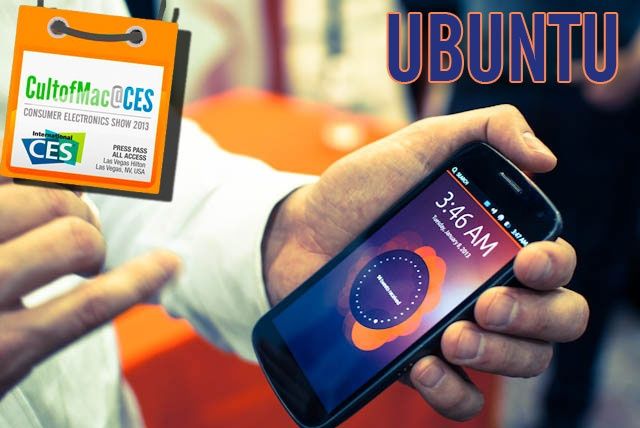Ubuntu For Smartphones Is Either Too Late, Or Early To The Future [CES 2013]
 LAS VEGAS, CES 2013 – Ubuntu’s entry into the smartphone market is interesting, and at first gasp, they look like another open-source Android competitor doomed from the start for lack of marketshare. Maybe it’s not so bleak, though, for the Linux maker. Sure, they’re hopelessly outnumbered and entering a bloody fray, but like Battlestar Galactica’s Cylons, they’ve got a plan.
LAS VEGAS, CES 2013 – Ubuntu’s entry into the smartphone market is interesting, and at first gasp, they look like another open-source Android competitor doomed from the start for lack of marketshare. Maybe it’s not so bleak, though, for the Linux maker. Sure, they’re hopelessly outnumbered and entering a bloody fray, but like Battlestar Galactica’s Cylons, they’ve got a plan.
Ubuntu’s entry into the smartphone space is essentially sparked by an underlying belief that in the future, there will be no distinction between devices. Smartphones, tablets, desktops, laptops: they’ll mostly all be consoles to a tiny little PC that’s small enough to take with you everywhere.
We’ve seen this approach tried before, namely with Asus’s rather hilarious Padfone announcement. But there’s an undercurrent of common sense to a belief that this is the future of computing, where there is no structural difference between various kinds of computers, and where different form factors are just consoles for different types of content.
So here is Ubuntu with their smartphone operating system, and if you dock it, it turns into a full-fledged (albeit ARM based) Ubuntu desktops. And while the representative I talked to at Digital Experience! was insistent that a tablet had not been announced “yet,” he was very open with me that a smartphone powering a tablet powering a laptop was exactly the path Ubuntu eventually enivisoned.
So, from a certain perspective, Ubuntu’s very, very late indeed to the smartphone wars. You’ve got Android and iOS on top, and everyone else fighting for scraps. But Ubuntu is going whole-hog into a vision of future computing that no one else is even really investing in. They could either be really late to the same game everyone else is playing, or very, very early to the future.
As for the operating system itself, I honestly liked it a lot. I’d seen petulant gripes about supposed “lagginess” but this is an operating system that is likely a year away from shipping on a working phone, and it seems very fluid to me on a year-old Galaxy test phone that it hasn’t even been tweaked for. More to the point, I really like a lot of the central conceits of the operating system. It’s true that it is aggressively dependent upon gestures, which makes it a difficult interface to discover, but for those who memorize the gestures, the rewards are great: a chromeless interface that puts content first. On a small smartphone screen? The lack of clutter is refreshing.
Canonical envisions Ubuntu for Smartphones largely being marketed to the emerging market and corporate clients who want smartphones that are essentially dockable into work stations. It’s an interesting business tactic, going after both the least wealthy and highest paying clients at a go, but not the massive middle of the consumer class. I admire that.
When it comes out, Ubuntu will find its niche on smartphones… and Canonical is banking that that niche will eventually become the mainstream.






